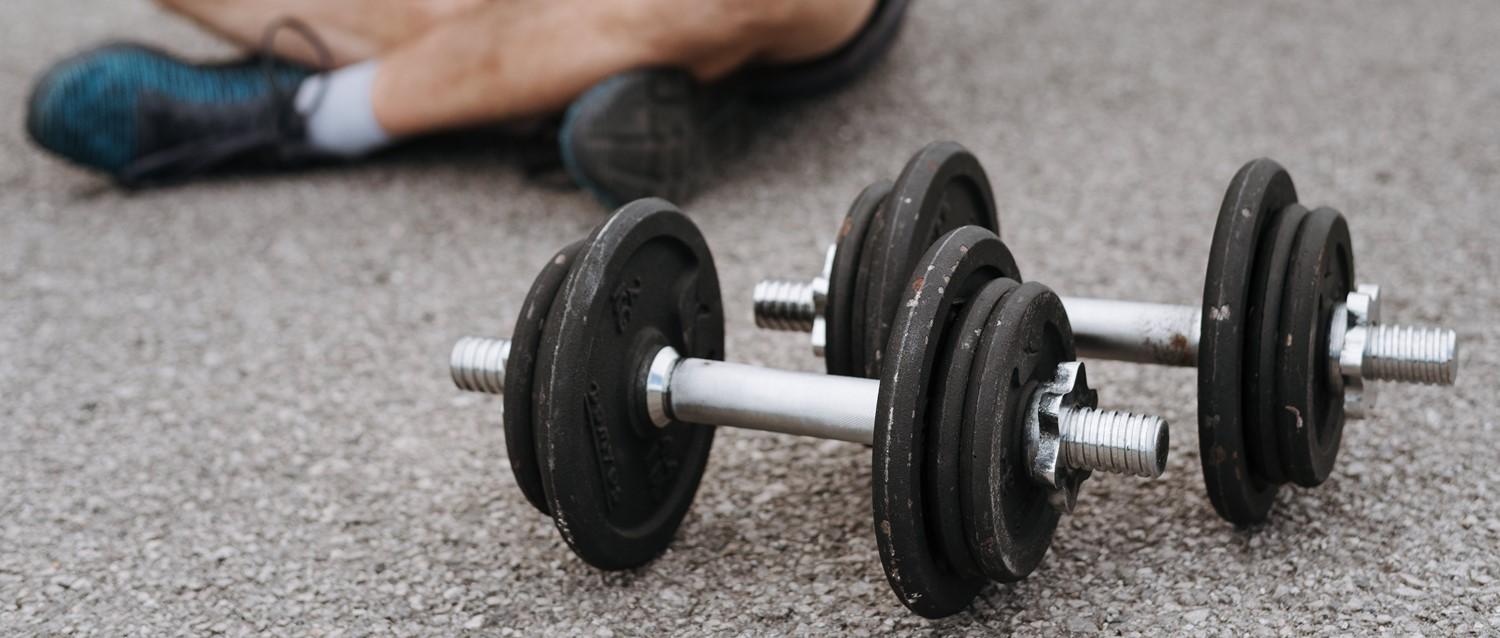
Are creatine supplements effective at building muscle?
Peer reviewed by Dr Krishna Vakharia, MRCGPLast updated by Amberley DavisLast updated 5 May 2023
Meets Patient’s editorial guidelines
- DownloadDownload
- Share
- Language
- Discussion
When it comes to supporting muscle growth, creatine is one of the most popular natural supplements. Although questions over its safety have been raised, there is no evidence to suggest that creatine supplementation is unsafe in healthy individuals. In fact, the evidence suggests that creatine is a very effective way to build muscle.
In this article:
Video picks for Exercise and physical activity
Creatine supplementation is a hugely popular and effective way to support muscle strength. This has been shown in many studies, when used alongside a healthy, protein-rich diet and regular strength/resistance training.
Continue reading below
What is creatine?
Our bodies naturally produce creatine from amino acids. In turn, creatine helps to make a molecule called adenosine triphosphate (ATP). This substance is our bodies' main source of energy for muscle contractions.
95% of our bodies' creatine is stored in the cells of our muscles, and if our levels of creatine are low then the production of ATP is significantly reduced and our energy can be dramatically decreased. Without energy, we can't perform well during exercise, and without adequate resistance exercise our muscle tissues cannot go through the process of tearing and rebuilding. It is this process that increases muscle mass over time.
Aside from creatine supplementation, the factors that affect our bodies' creatine storage levels include natural food sources of creatine, how much muscle mass we have, how much we exercise, and the levels of protein and certain hormones like testosterone we have.
How does creatine help you to build muscle?
Back to contentsIncreasing the production of ATP is creatine's primary function during high-intensity exercise. However, there are several other ways that creatine helps us to build muscle. Creatine:
Increases cell signalling, which aids muscle repair and growth.
Raises levels of certain hormones ,which support muscle growth.
Reduces muscle breakdown, by reducing protein breakdown.
Supports cell hydration.
Reduces levels of the protein myostatin, which can slow muscle growth.
Continue reading below
How effective are creatine supplements at supporting muscle growth?
Back to contentsMany studies have looked at the effectiveness of consuming additional creatine through supplements, and found this to be effective for muscle building and strength.
These positive results are subject to the participants also following high-resistance training routines, and the effectiveness is compared to those who follow similar training exercises without supplementation.
The International Society of Sports Nutrition (ISSN) describes creatine supplementation as the most effective nutritional supplement currently available to athletes for increasing high-intensity exercise capacity and lean body mass during training.
Other health benefits of creatine
There are also other potential health benefits of increasing your creatine stores. As a small percentage of creatine is stored in the brain, an increase in creatine storage can protect against neurological diseases, such as Alzheimer's and Parkinson's. Creatine supplementation has therefore been studied as a possible therapeutic agent for such diseases.
Is creatine bad for you?
Back to contentsCreatine supplementation has received some bad press, and anecdotal claims of side-effects including cramping, increased risk of injury, dehydration, and liver or kidney damage have spread.
However, there is no evidence to suggest that creatine supplements have caused these symptoms in healthy individuals. While it is true that athletes who have taken these supplements have experienced these problems, so have many athletes who haven't taken creatine. Research suggests that taking creatine bears no greater risk to developing these conditions.
For example, some studies have found that supplementation does not increase the risk of injury or cramping.
The ISSN describes creatine supplementation as safe, effective, and ethical. This said, safety can never be guaranteed, especially when it is administered for a long period of time. A lot of data have focused on young, healthy adults. Groups such as the elderly or the very young are less studied.
Who should take creatine supplements?
Although creatine supplementation has been widely researched and tested for adults, fewer investigations have looked at its use and safety for adolescents and children. While no studies have found adverse effects in children, it's advised that creatine supplements should not be taken until after puberty.
There is also little research into their safety in pregnant or breastfeeding women, so it's best to avoid. You should avoid creatine supplements if you have chronic kidney disease or are taking medicines which have kidney damage as a potential side-effect.
For adults, creatine can be taken by anyone who is regularly participating in high-intensity exercise and using their muscles. Taking creatine won't benefit the kind of exercise that lasts more than 90 seconds, such as long-distance running.
Continue reading below
How much creatine do you need?
Back to contentsReema Patel is a London-based dietitian. She shares her advice: "Supplementation of around 0.1 grams (g) per kilogram (kg) of body weight with creatine monohydrate is usually the recommended dose for those who regularly heavy resistance train."
You may also want to break your creatine supplement doses into two distinct phases:
The loading phase - involves taking slightly more creatine - 0.3 g per kg of body weight - for the first 3-7 days.
The maintenance phase - take around 0.1 g per kg of body weight to maintain the elevated creatine stores in your muscles.
ISSN recommends this method as the quickest way to increase muscle mass.
The method of cycling, where you alternate between using creatine supplements and not using them every couple of weeks, has not been scientifically proven to increase effectiveness.
Food sources of creatine
Back to contentsRemember, creatine supplements are only effective when taken in addition to natural sources of creatine. We get a large portion of creatine through the foods we eat.
Animal protein foods are good sources of creatine, including red meat, fish and lean meat.
Since creatine is mostly found in animal protein, people who follow a plant-based diet can instead aim to consume foods that are rich in amino acids, as these help our bodies to synthesise creatine.
Vegetarian foods containing amino acids include milk, cheese, and eggs, while vegan sources include white beans, walnuts, almonds, and watercress.
Patient picks for Exercise and physical activity

Healthy living
Video: Hip pain exercises
Hip injuries are common in all age groups. The most common cause of chronic (long-standing) hip pain in adults is osteoarthritis. Because the hip is such a complex joint, hip pain can be caused by many different things including: muscular injuries; ligament injuries; bursa injuries; cartilage tears; bone problems; fractures; reduced blood flow to the hip joint; or infection.
by Lilly Sabri, MHPC

Healthy living
How to maintain your fitness New Year's resolutions
Many of us like to set New Year's resolutions, and often vow to start exercising more or become healthier. However, on average, 80% of New Year's resolutions fail by the second week of February and fitness resolutions in particular can be challenging to keep up. So, how can you maintain your fitness goals when the urge to stay in bed rather than jog to the gym on a cold January morning is just so strong?
by Lynn Stephen
Continue reading below
Article history
The information on this page is peer reviewed by qualified clinicians.
Next review due: 5 May 2026
5 May 2023 | Latest version
26 Nov 2021 | Originally published
Authored by:
Amberley Davis

Ask, share, connect.
Browse discussions, ask questions, and share experiences across hundreds of health topics.

Feeling unwell?
Assess your symptoms online for free
Sign up to the Patient newsletter
Your weekly dose of clear, trustworthy health advice - written to help you feel informed, confident and in control.
By subscribing you accept our Privacy Policy. You can unsubscribe at any time. We never sell your data.